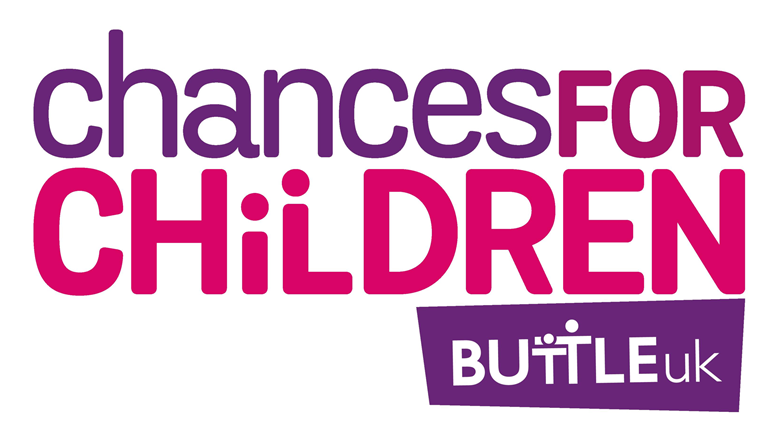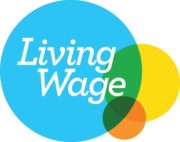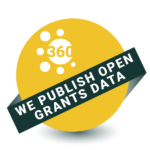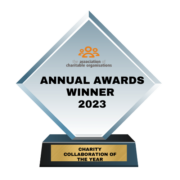The start of Buttle UK’s co-production journey
Buttle UK’s Co-Production and Youth Engagement Manager, Charlotte, reflects on the steps we’ve taken so far to become more accountable to young people, families and professionals.
How it started
In recent years, there has been a positive shift in the wider grant-giving sector towards participation and co-production between funders and grant recipients, especially amongst grant givers who fund other organisations. Many are attempting to be more open, approachable and transparent in their grant giving processes, and involve organisations they fund in their learning and improvement, decision making and strategic planning cycles.
Buttle UK is keen to spearhead this amongst organisations who fund individuals and families. We want to move away from the historical approach of grant-giving organisations, i.e. that this money is ours, and families, young people and professionals must justify why they are deserving of financial help in order for us to give any of our money out to them. This doesn’t sit well with our approach as a charity which is child-focused and empathetic, and it further disempowers those who already face significant hardship and challenges in their lives.
Of course, we still need families to tell us why they need help and – because there is only so much money – we have to make decisions based on whose circumstances best fit our criteria. But we know there are ways for us to be more transparent and open about our grant decisions, and for us to be more accountable to those who we are here to support.
This was the discussion we had back in 2019, as we were planning our strategy for the coming five years. As a result, a core pillar of our 2020-25 strategy was dedicated to co-production and accountability, with objectives to bring lived and learned expertise of families and professionals into Buttle UK, and for the voices of children and young people to help shape and energise our organisation.
How it’s going
We reviewed progress against our objectives in spring 2022. Two years in, and the strategy group had made good progress in thinking through what co-production means to Buttle UK, getting trustees on board, exploring different models and gaining buy-in across all staff teams. With the support of the KPMG Foundation, we were also carrying out our first piece of co-produced research with estranged young people, which has been a hugely successful and exciting project, if a steep learning curve.
However, the strategy group realised there just wasn’t the capacity for this to be driven forwards in the way they wanted, and it was flagged that that without dedicated resource, our co-production work would remain an “add-on” or be tokenistic – exactly what the team didn’t want to happen.
This is where I came in! I joined Buttle UK at the beginning of October 2022 as the Co-Production and Youth Engagement Manager.
Since I joined, we have developed an agreed definition of what co-production means at Buttle UK, which has been developed with staff and trustees. We are establishing an Advisor Network of professionals, families and young people who engage with us and are in the process of recruiting our first members. We are also starting to get young people from our Surviving Estrangement project and our boarding programme involved in discussions about what a Buttle UK Youth Panel would look like.
I’ve also been working on lots of important practical things, such as safeguarding processes, payment policies and contact management, so that when our young people are ready to get involved, everything is safe, clear and straightforward for them. Finally, I’ve been learning lots from other organisations who are also starting to co-produce with the people they support and sharing these lessons with the strategy group and wider team.
You can read more about our co-production work so far in the new section on our website.
What we’ve learned so far
Although we’re still at the beginning of our co-production journey, we have already been on a steep learning curve, either through our own experiences or from hearing about the experiences of others.
Some of the things we have already learned include:
- Language and terminology is important.
We started by calling this work “Beneficiary Involvement” but soon realised that the term “beneficiary” is problematic, as it suggests that the families who receive our grants should be grateful and that Buttle UK hold the power in the relationship. After speaking to others, our strategy group changed this to “Co-Production and Accountability”, to capture what we are trying to achieve through this work. - Investing the time in getting staff and trustees on board makes everything easier.
The time that the co-production and accountability strategy group took to consult with the wider team and trustees before I started has created a genuine commitment to co-production at Buttle UK. This has made my job much easier since I started, as I’m knocking on open doors everywhere I go – whether with the strategy group, the staff team or our board of trustees. Each group is on board, excited and ambitious about what co-production can achieve for Buttle UK and the families we support.
- Take the time to plan and get things right first time.
Co-production asks a lot of those who get involved. While it’s tempting to jump in and start creating, it is well worth taking the time to think things through and make sure you have important processes, policies and procedures in place before contacting those you want to engage. This includes safeguarding, payment policies, communication approaches and lining up projects. These can of course be tweaked and amended (in fact, it’s good to do this with young people), but by having initial processes in place, it’s more likely that those involved in co-production will have a positive, professional experience and you can anticipate issues or queries before they arise. Planning projects can also mean you can be reasonable with your workload and avoid over-committing and disappointing young people or colleagues.
Next steps
I’ll be busy recruiting to our Advisor Network and engaging young people in discussions about our planned Youth Panel. Once we’ve recruited, we’ll start our initial projects with members of both groups.
We’re also reviewing our Surviving Estrangement project with the staff and young people who were involved, so keep your eye out for a blog with key learning from this soon!
For more information about co-production at Buttle UK, visit the co-production section of our website or email coproduction@buttleuk.org.





